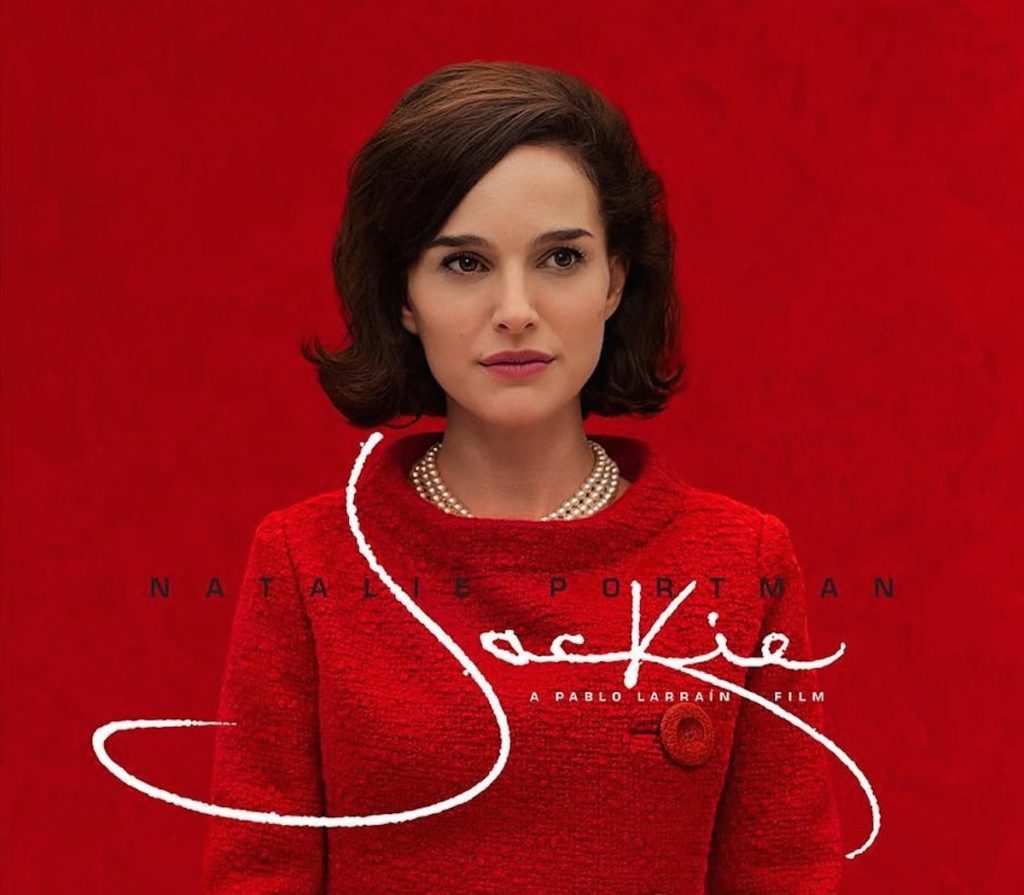Nigel Watson has written a review of Jackie, which is showing in our cinema on the 10th and the 15th and 16th of March. Tickets available here. Just three screenings are being held for this film, so book your tickets early to avoid missing out!
Pablo Larrain’s film is an intense study of how Jackie Kennedy (Natalie Portman) copes with the assassination of her husband, President John F. Kennedy (Casper Phillipson). Her thoughts and memories of that day in Dallas are brought to life through an interview with ‘the journalist’ (Billy Crudup – based on Life magazine journalist Theodore H. White). He finds her alone in the Kennedy mansion in Hyannis Port, Massachusetts, but Jackie quickly lets him know that she is no weeping widow and she is determined to keep control of what he makes public.
Whereas other films, like Oliver Stone’s JFK, seek to find out how and why Kennedy was killed, Larrain examines how Jackie tries to understand and deal with this momentous event in her own personal life and in the life of the nation.
The events are played out on the world’s stage at a time when the Cold War was at its height and there was much civil unrest at home, making it urgent that Kennedy is quickly replaced by Lyndon B. Johnson (John Carroll Lynch). Jackie can only look on in stunned silence as he is inaugurated as the new President, whilst her husband’s body is still fresh in his coffin. Her displacement is total when she glimpses Johnson’s wife making plans to redecorate the White House.
Emphasis is made on the fact that Jackie reformed the appearance and life of the White House. She turned it into a stylish home, fit for her two young children, and filled with art and artistic events.
A flashback shows her in a live TV broadcast where she shows the world around her home, pointing out that she is also preserving the history of the place as well as modernising it. The journalist tries flattering her by saying she could make a career in television, she doesn’t look impressed by that suggestion. Indeed, her appearance in the programme looks wooden and contrived (a woman behind the camera keeps reminding her to smile), in contrast, when President Kennedy appears, he looks relaxed and at ease with the camera.
She admits that her husband, and the public think, she is wasting taxpayers money on such trivialities, but she knows about the importance of history and the legacy of the presidency. This is her way of making an impact on history, likewise she feels it important to organise a state funeral worthy of the man and not have a quick motorcade through the streets to avoid the bullets of other assassins.
As a mother she is questioned about whether she should have put her children on public display at the funeral, as a wife she wonders if her plans for the ceremony are the product of her own vanity rather than a tribute to a great man, father and President.
She voices her concerns to her priest (John Hurt), and confesses she contemplates suicide and questions a God who can allow such things to happen. He offers the parable of the blindman, in that we are given darkness so that we can appreciate the light.
Looking back, she realises that his presidency was like Camelot, indeed the soundtrack of Camelot the Broadway musical was John’s favourite record. From this, and only four days after Kennedy’s burial, she is able to regard his term in office as a mythological time that cannot be stained by reason, history or an assassins bullet. Blending fact with fiction she says:
“Don’t let it be forgot, that for one brief, shining moment there was Camelot.”
The film shows in detail Jackie putting her make-up on in Airforce One before arriving at Dallas, and later at the same mirror, wiping off the blood of her husband. It concentrates on how she is concerned with appearances, how things look now and how things will look in the future. This is where she has the power, but Portman’s performance shows that she is always on the edge, trying to keep everything under control. Her life might disintegrate at any moment just like the skull of her assassinated husband, only the myth of Camelot can keep the dream alive and the truth repressed in the dark long corridors of her tortured mind.
Nigel Watson is a freelance writer working and living in Plymouth.









Comments
Comments are closed.